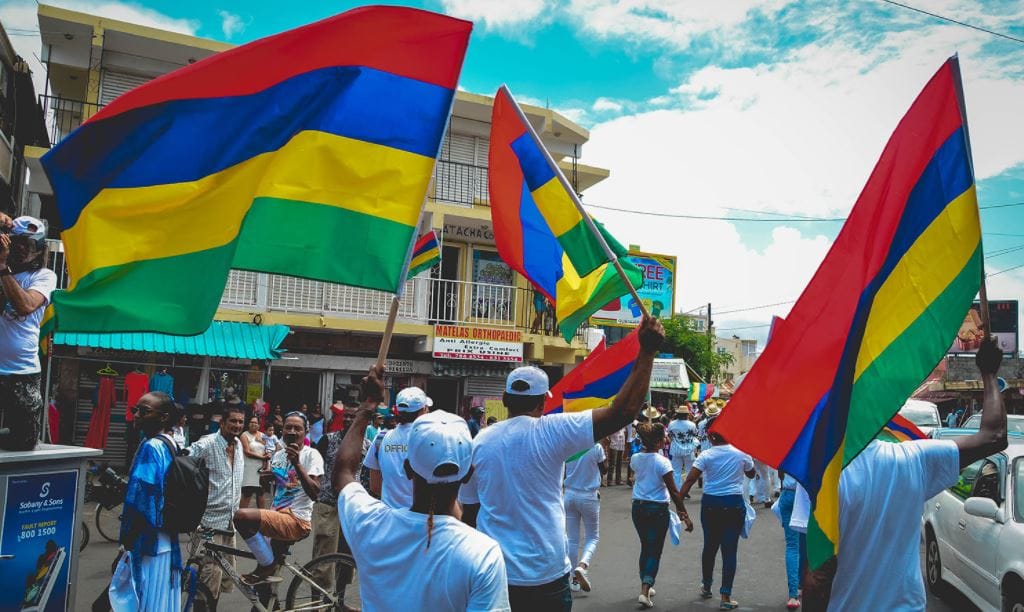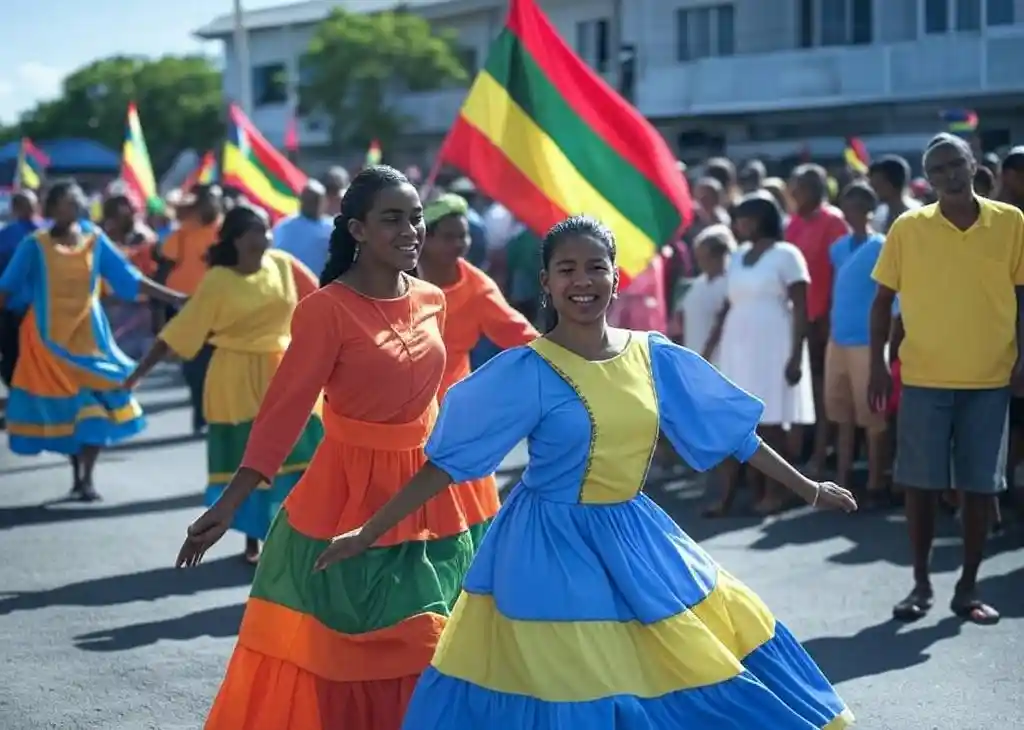Mauritius marks 57 years of independence today, celebrating its transformation from colonial rule to a model of unity and economic progress in Africa. This year’s theme, “As One People, As One Nation,” underscores the country’s commitment to solidarity and multicultural harmony.
The day’s centerpiece event, a flag-hoisting ceremony, takes place at Champ-de-Mars in Port Louis, led by national leaders and attended by dignitaries. The celebrations include parades, cultural performances, and speeches, with Indian Prime Minister Narendra Modi joining as the Chief Guest, highlighting Mauritius’s deep historical ties with India.

A Legacy of Struggle and Resilience
Mauritius, an island nation in the Indian Ocean east of Madagascar, has a history shaped by colonization, migration, and resilience. First visited by Portuguese explorers in the 1500s, the island was later settled by the Dutch, who abandoned it due to harsh conditions.
In 1715, the French took control, renaming it Isle de France and establishing a thriving sugarcane economy that relied on the labor of enslaved Africans and Indians. This period brought prosperity but also deepened social divisions.
By the early 19th century, British forces seized control during the Napoleonic Wars, restoring the island’s original name, Mauritius. Although slavery was abolished in 1835, the British introduced indentured laborers from India and Asia to sustain plantation agriculture, shaping the diverse cultural identity of modern Mauritius.
Following World War II, the movement for self-rule gained momentum, culminating in independence on March 12, 1968. Mauritius became a sovereign state within the Commonwealth, with an elected Prime Minister and a constitutional framework that has since fostered democracy and stability.
A Celebration of Diversity and National Pride
Independence Day is a unifying moment for Mauritians of all backgrounds, celebrated with pride and enthusiasm across the country. The day begins with the flag-hoisting ceremony at Champ-de-Mars, followed by a grand parade featuring military processions, school groups, and cultural performers.

The Prime Minister and other national leaders address the nation, reflecting on Mauritius’s achievements and outlining future aspirations. Cultural performances showcase the country’s rich heritage, with traditional Creole séga music, Indian classical dance, and Chinese lion dances, symbolizing the multicultural fabric of the nation.
This year’s theme not only honors the nation’s political independence but also emphasizes the importance of social unity in a country home to Indo-Mauritian, Creole, Sino-Mauritian, and Franco-Mauritian communities.
Mauritius: A Model for Africa’s Future
Since gaining independence, Mauritius has emerged as a beacon of economic success in Africa. Its diversified economy, driven by tourism, financial services, technology, and agriculture, has contributed to high human development rankings and a strong democratic framework.
Despite challenges such as climate change and the need for further economic diversification, Mauritius remains one of Africa’s most stable nations, recognized for its robust institutions, social cohesion, and progressive policies.
As the nation celebrates another milestone, Mauritius’s Independence Day serves as a reminder of its resilient past, multicultural identity, and vision for the future—a story of hope, unity, and progress that continues to inspire the continent.


